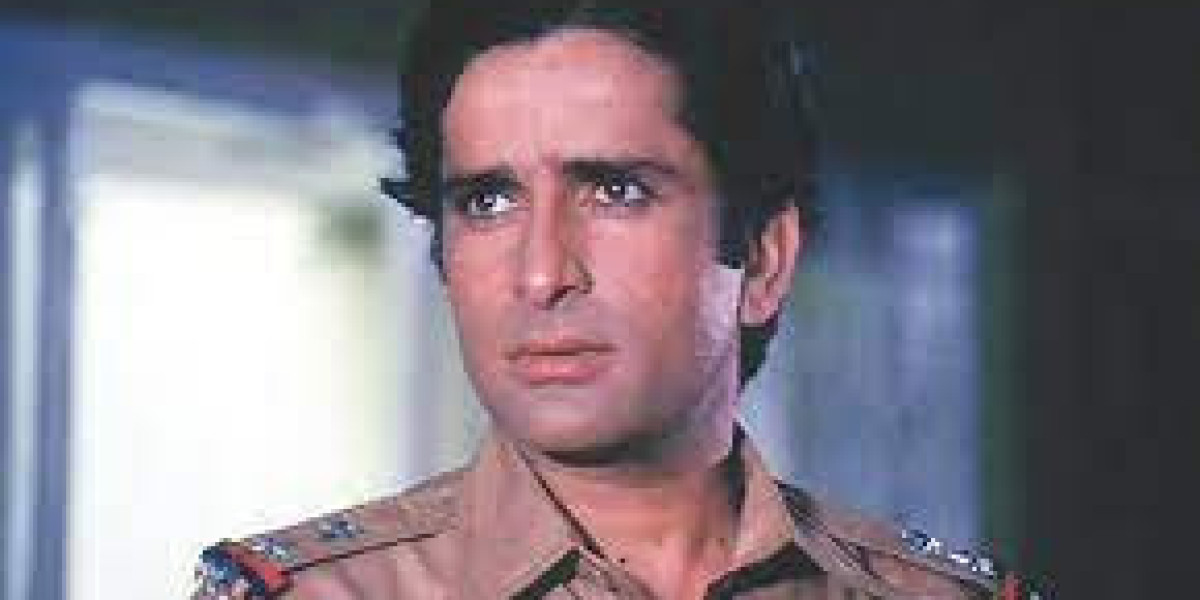Shashi Kapoor, a name that resonates with the charm, elegance, and charisma that defined an era of Indian cinema. Born on March 18, 1938, in Kolkata, India, Shashi Kapoor was not just a renowned actor but also a dynamic and influential figure in the Indian film industry. His journey in the world of entertainment spans over five decades, and his contribution to both mainstream and parallel cinema remains unparalleled. This article delves into the life and legacy of Shashi Kapoor, celebrating his remarkable career and the indelible mark he left on the Indian film industry.
Early Life and Entry into Cinema
Shashi Kapoor was born as Balbir Raj Kapoor into the illustrious Kapoor family, which has been an integral part of the Indian film industry for generations. His father, Prithviraj Kapoor, was a legendary actor, director, and founder of the iconic Prithvi Theatre. Growing up in a family deeply rooted in the world of theater and cinema, Shashi was introduced to the magic of storytelling and performance from an early age.
Also read : Celebrity Lineage: The Enigmatic Life Of Finley Aaron Love Lockwood
Shashi's journey in cinema began as a child artist. At the tender age of six, he made his debut in the film "Awara" (1951), directed by and starring his uncle Raj Kapoor. He played the younger version of his character. This early exposure to the film industry instilled a passion for acting and a love for the art of storytelling in Shashi Kapoor.
The Rise to Stardom
Shashi Kapoor's transition from a child artist to a leading actor was marked by his incredible talent and dedication. He made his adult acting debut with the film "Dharmputra" in 1961, which was directed by Yash Chopra. The film's critical acclaim and Shashi's noteworthy performance laid the foundation for his future success.
One of the defining features of Shashi Kapoor's career was his versatility. He effortlessly portrayed a wide range of characters, from romantic heroes to intense and complex roles. He was equally at ease in commercial Bollywood cinema and parallel cinema. This flexibility set him apart from many of his contemporaries.
Bollywood and Iconic Pairings
Shashi Kapoor had an undeniable charm that made him a heartthrob of his time. His good looks, pleasant demeanor, and charismatic smile endeared him to audiences across India and beyond. His on-screen chemistry with leading actresses of the era, such as Sharmila Tagore, Zeenat Aman, and Hema Malini, created some of the most memorable romantic pairings in Bollywood history.
One of his most famous partnerships was with Sharmila Tagore, with whom he starred in numerous successful films like "Waqt" (1965), "Aamne Samne" (1967), and "Raja Rani" (1973). Their on-screen chemistry was magical, and they were considered one of the most beloved on-screen couples of their time.
Parallel Cinema and Collaboration with Merchant-Ivory
While Shashi Kapoor was a prominent figure in mainstream Bollywood cinema, he also made significant contributions to the parallel cinema movement in India. His collaboration with renowned filmmakers Ismail Merchant and James Ivory resulted in critically acclaimed films such as "The Householder" (1963), "Shakespeare Wallah" (1965), and "Heat and Dust" (1983). These films explored complex themes and showcased Shashi Kapoor's ability to transcend the boundaries of commercial cinema.
One of the standout moments in Shashi's career was his role in "Junoon" (1978), directed by Shyam Benegal. The film was a historical drama set during the Indian Rebellion of 1857 and provided a platform for Shashi Kapoor to showcase his acting prowess in a challenging and unconventional role. His portrayal of Javed Khan earned him accolades from both critics and audiences alike.
Contribution to Indian Cinema
Shashi Kapoor's contribution to Indian cinema extended beyond his acting talent. He ventured into film production and established his production company, Film Valas, which produced several successful films, including "Junoon" and "Kalyug" (1981). He was committed to promoting quality cinema and provided a platform for emerging talent in the industry.
In addition to his acting and production roles, Shashi Kapoor was a key figure in the Prithvi Theatre, founded by his father. He continued the legacy of the theater and worked towards its revival and promotion. The theater played a pivotal role in nurturing the talents of many actors and playwrights in India.
International Recognition
Shashi Kapoor's magnetic presence and immense talent did not go unnoticed on the international stage. He appeared in several British and international films, including "The Householder," "Shakespeare Wallah," and "Bombay Talkie" (1970), all of which were directed by the Merchant-Ivory team. These films introduced him to a global audience and garnered international acclaim.
In recognition of his significant contributions to cinema, Shashi Kapoor received the prestigious Padma Bhushan award from the Indian government in 2011. This honor acknowledged his outstanding career and his lasting impact on Indian cinema.
Personal Life and Philanthropy
Shashi Kapoor's personal life was as fascinating as his professional one. He was known for his charisma and warmth, which made him a beloved figure among his colleagues and fans. In 1958, he married Jennifer Kendal, a prominent English theater actress. Their love story transcended cultural boundaries and served as a testament to the power of love and art to bring people together.
Tragedy struck the Kapoor family when Jennifer Kendal passed away in 1984. Shashi Kapoor continued to be a loving and devoted father to his three children, Kunal Kapoor, Karan Kapoor, and Sanjana Kapoor, who all followed in their parents' footsteps in the world of acting and theater.
Shashi Kapoor's commitment to social causes was as strong as his commitment to his craft. He was actively involved in various charitable activities and supported numerous social initiatives. His efforts to promote and preserve Indian theater and cinema heritage are still celebrated today.
Also read : Redsteeze: Bio, Net Worth, And More
Legacy and Influence
Shashi Kapoor's influence on Indian cinema is immeasurable. He was a bridge between classical Indian cinema and the new wave of filmmaking, helping to shape the industry's evolution. His ability to seamlessly transition between commercial and parallel cinema showcased the depth and range of his talent.
His charming smile, graceful screen presence, and dedication to his craft earned him a permanent place in the hearts of film enthusiasts worldwide. His legacy lives on through his extensive filmography and the enduring impact he had on Indian cinema.
Shashi Kapoor's Enduring Charm
One of the defining qualities of Shashi Kapoor was his enduring charm. He had the rare ability to make audiences laugh, cry, and fall in love, all in the same film. His smile was infectious, and his presence on screen had an irresistible magnetism.
In his romantic roles, he exuded a captivating charisma that left an indelible mark on the hearts of his viewers. Whether it was in the romantic drama "Kabhi Kabhie" (1976) or the comedy "Chupke Chupke" (1975), Shashi Kapoor's charm was a vital ingredient in the success of these films.
A Pioneer in Parallel Cinema
Shashi Kapoor's contribution to parallel cinema is a testament to his versatility as an actor. In the 1960s and 1970s, when parallel cinema was gaining momentum, Shashi Kapoor embraced this genre and collaborated with some of the most distinguished filmmakers of the time.
His association with the Merchant-Ivory duo was particularly notable. They created films that were not only critically acclaimed but also showcased Shashi Kapoor's ability to adapt to different cinematic styles and narratives.
Shashi Kapoor: The Cultural Ambassador
Shashi Kapoor's foray into international cinema made him a cultural ambassador. His performances in British and international films exposed the world to the talent and charisma of Indian actors. His work with filmmakers like Ismail Merchant and James Ivory highlighted the rich storytelling tradition of Indian cinema and its ability to connect with global audiences.
Conclusion
Shashi Kapoor was a luminary in the world of Indian cinema. His career was defined by his exceptional acting talent, versatility, and charm that endeared him to audiences across the globe. From his early days as a child artist to his remarkable journey in both mainstream and parallel cinema, Shashi Kapoor's legacy continues to inspire and influence the Indian film industry.
His personal warmth and dedication to social causes further solidified his place as a beloved figure in the hearts of people. Shashi Kapoor's enduring charm and remarkable contributions to cinema make him a timeless icon whose influence will be felt for generations to come.
Shashi Kapoor may have left this world, but his films and the memories he created on screen continue to bring joy and inspiration to film enthusiasts around the world. His name remains synonymous with grace, talent, and the magic of Indian cinema.















